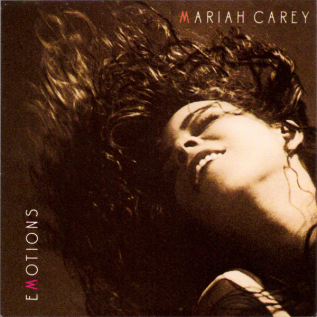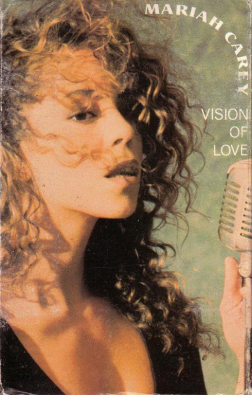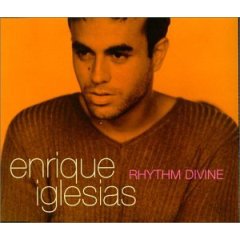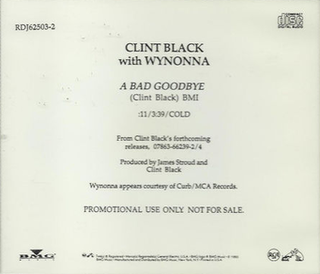Related Research Articles

"Can't Let Go" is a song recorded by American singer Mariah Carey for her second studio album, Emotions (1991). Columbia Records released it as the album's second single in November 1991. Featuring synthesizers and drum programming, "Can't Let Go" is a breakup song in the form of an R&B and pop slow jam. The lyrics, written by Carey, are about post-breakup sadness. She composed the music and produced the song with Walter Afanasieff, who had previously worked on her 1990 single "Love Takes Time". Carey's vocal range spans more than three octaves; her delivery is predominately breathy and in a low register, with whistle notes featured in the song's introduction and ending.

"Emotions" is a song recorded by American singer-songwriter Mariah Carey for her second studio album of the same name (1991). It was written and produced by Carey, Robert Clivillés, and David Cole of C+C Music Factory and released as the album's lead single on August 13, 1991 by Columbia Records. The song's lyrics has its protagonist going through a variety of emotions from high to low, up to the point where she declares, "You got me feeling emotions." Musically, it is a gospel and R&B song heavily influenced by 1970s disco music and showcases Carey's upper range and extensive use of the whistle register. Jeff Preiss directed the song's music video.

"I Don't Wanna Cry" is a song recorded by American singer Mariah Carey for her first album Mariah Carey (1990). Written by Carey and producer Narada Michael Walden, Columbia Records released it as the album's fourth single in March 1991. A Latin soul–influenced pop ballad, the torch song describes the end of romance. It features drums, guitars, digital synthesizers, and a classic song structure with highly delineated section roles. Modulations occur between these segments that emphasize the singer's emotions. Varying from whispering to belting, Carey's vocal range spans more than two octaves.

"Vision of Love" is the debut single by American singer-songwriter Mariah Carey for her eponymous debut studio album (1990). It was written by Carey and Ben Margulies. After being featured on Carey's demo tape for Columbia Records, the song was re-recorded and produced by Rhett Lawrence and Narada Michael Walden. The song features a slow-dance theme tempo and backing vocals sung by Carey herself, and introduces her usage of the whistle register. The lyric of the song represents her past life filled with "alienation" and how she had dreamt of achieving her triumph over adversity up to the moment when it finally came to fruition as the "vision of love" that she had always believed in, despite everything that she has had to deal with in life. This was Carey's debut record and was released as the lead single from Mariah Carey on May 15, 1990, by Columbia Records.

"Never Forget You" is a song recorded by American singer Mariah Carey for her third studio album, Music Box (1993). Carey co-wrote the slow jam with Babyface and the pair produced it with Daryl Simmons. Columbia Records released the song on January 21, 1994, as the B-side to "Without You" and promoted it to American urban contemporary radio stations as the album's fourth single. The lyrics lament the end of a romance. Strings, synthesizers, and percussion characterize the composition; Jermaine Dupri altered them for remixes.

"Achy Breaky Heart" is a song written in 1990 by Don Von Tress. First released in 1991 by the Marcy Brothers with the title "Don't Tell My Heart", it was later recorded by American singer and actor Billy Ray Cyrus and released on his debut album, Some Gave All (1992). The song is Cyrus's debut single and signature song. It became the first single ever to achieve triple platinum status in Australia and also 1992's best-selling single in the same country. In the United States, it became a crossover hit on pop and country radio, peaking at No. 4 on the Billboard Hot 100 and topping the Hot Country Songs chart, becoming the first country single to be certified platinum since "Islands in the Stream" by Kenny Rogers and Dolly Parton in 1983. The single topped in several countries, and after being featured on Top of the Pops in the United Kingdom, peaked at No. 3 on the UK Singles Chart. It was Cyrus's biggest hit single in the U.S. until he was featured on "Old Town Road" by rapper Lil Nas X, which peaked at No. 1 on the Billboard Hot 100 27 years later.
"Save the Best for Last" is a song by American singer and actress Vanessa Williams, released in January 1992 as the third single from her second studio album, The Comfort Zone (1991). The song was written by Phil Galdston, Wendy Waldman, and Jon Lind. It is a ballad about a young female admirer of a single man who stands by and watches as the object of her desires goes through years of dating, before he finally unexpectedly decides to initiate a relationship with her. The lyrics' redemptive themes resonated with Williams' story, as she had put together a successful music career following her earlier Miss America resignation scandal.
"Don't Know Much" is a song written by Barry Mann, Cynthia Weil and Tom Snow. Mann was the first to record the song in 1980, gaining a minor chart hit in the US. The song was made famous when it was covered as a duet by Linda Ronstadt and Aaron Neville in 1989. Their version was a worldwide success, topping the Irish Singles Chart and reaching the top 10 in several territories.

"Rhythm Divine" is a song by Spanish singer Enrique Iglesias from his fourth studio album, Enrique (1999). The song was written by Paul Barry and Mark Taylor with Taylor and Brian Rawling handling its production. It is a dance-pop rhythmic romantic ballad that mixes with Latin and Mediterranean music. Lyrically, Iglesias asks the listener if they can hear the rhythm, and one music journalist compared it to USA for Africa's "We Are the World" (1985). A Spanish-language translation of the song titled "Ritmo Total" was also recorded and features additional lyrical contributions by Rafael Pérez-Botija.

The O'Kanes were an American country music duo composed of Jamie O'Hara and Kieran Kane, both vocalists and guitarists. Active between 1986 and 1990, the duo recorded three albums for Columbia Records and charted seven singles on the Billboard Hot Country Singles chart, including "Can't Stop My Heart from Loving You".

"Change" is a song by British singer-songwriter and actress Lisa Stansfield from her second album, Real Love (1991). The song was written by Stansfield, Ian Devaney and Andy Morris, and produced by Devaney and Morris. It was released as the lead single on 7 October 1991 by Arista Records. "Change" was remixed by Frankie Knuckles and Driza Bone.

American country music duo The Judds released six studio albums, three live albums, 18 compilation albums, five video albums, two extended plays, one box set, five music videos, 29 singles and 1 album appearance. The duo consisted of mother, Naomi Judd, and her daughter, Wynonna Judd. The pair signed a recording contract with RCA Nashville and Curb Records in 1983. Later that year, their debut single was released called "Had a Dream ". Their next release, "Mama He's Crazy", became their first number one hit on the Billboard Hot Country Singles & Tracks chart. The song's success led to the release of their debut EP in 1984. It peaked at number eight on the Billboard Top Country Albums chart. In October 1984, their debut studio album was released entitled Why Not Me. It peaked at number one on the country albums chart and number 71 on the Billboard 200. Why Not Me would sell over two million copies. It also spawned three number one country hits: the title track, "Girls' Night Out" and "Love Is Alive".

The discography of American country music artist Wynonna contains nine studio albums, four compilation albums, two video albums, one live album, one extended play (EP), 43 singles, 11 music videos and one other-charting song. She achieved success as one half of the mother-daughter duo, The Judds. In 1991, the duo split and Wynonna signed a solo recording contract with MCA Records that year. In March 1992, her debut studio album entitled Wynonna reached number one on the Billboard Top Country Albums chart and number four on the Billboard 200. The album spawned three number one hits on the Billboard Hot Country Songs chart: "She Is His Only Need," "I Saw the Light" and "No One Else on Earth." The album also sold over five million copies. In 1993, it was followed by Tell Me Why, which certified platinum in the United States. It also topped the country albums chart and reached number five on the Billboard 200 It spawned five more top ten country hits, including the title track and "Rock Bottom."

"A Bad Goodbye" is a song written by American country music artist Clint Black, and recorded by him as a duet with fellow country music artist Wynonna. The song was recorded after the two toured together during their "Black and Wy" tour in 1993. It was released in May 1993 as the first single from Black's album No Time to Kill. It peaked at number 2 on the Billboard Hot Country Singles & Tracks chart, behind "Chattahoochee" by Alan Jackson. In addition, it was Black's first appearance on the Billboard Hot 100, peaking at number 43 there.
"No One Else on Earth" is a song written by Jill Colucci, Stewart Harris and Sam Lorber, recorded by American country music artist Wynonna. It was released in August 1992 as the third single from Wynonna's self-titled debut album. It was also that album's third Number One hit on the Billboard Hot Country Singles & Tracks charts. It was remixed for release in the UK in 1994, titled "No One Else on Earth '94". It was released on cassette, vinyl, and CD formats. This version was released internationally on Wynonna's first solo compilation album, Collection, in 1997, labeled as "No One Else on Earth ". This version was used for the music video for the song.

"Go On" is a song written by Mark Nesler and Tony Martin, and recorded by American country music artist George Strait. It was released in July 2000 as the lead-off single from his self-titled album.

"Angel" is a song recorded by Cuban singer-songwriter Jon Secada for his eponymous debut studio album, Jon Secada (1992). Written by Secada and Miguel Morejon, SBK Records released it as the album's third single in January 1993 by EMI Latin and SBK. The Spanish version of "Angel" served as the second single of the album. The recording was inspired by a real-life experience that Secada encountered during a concert in Amsterdam. A downtempo romantic soul pop ballad, the track portrays a traditional storyline in which a man goes through the conclusion of a relationship, paying tribute to what he calls a lasting love.
"One Man Woman" is a song written by Paul Kennerley, and recorded by American country music duo The Judds. It was released in November 1989 as the third single from the album River of Time. The song reached number 8 on the Billboard Hot Country Singles & Tracks chart.

"Story of Love" is a song written by Chris Hillman and Steve Hill, and recorded by American country music group The Desert Rose Band. The song was produced by Paul Worley and Ed Seay, and released in July 1990 as the third and final single from the band's third studio album Pages of Life.
"Guardian Angels" is a song written Naomi Judd, John Barlow Jarvis and Don Schlitz, and recorded by American country music duo The Judds. It was released in March 1990 as the fourth single from the album River of Time. The song reached #16 on the Billboard Hot Country Singles & Tracks chart.
References
- ↑ Whitburn, Joel (2004). The Billboard Book Of Top 40 Country Hits: 1944-2006, Second edition. Record Research. p. 184.
- ↑ "JUDDS ADD JAZZ TO COUNTRY SOUND ON LATEST ALBUM". Richmond Times Dispatch. November 4, 1990. ProQuest 423400432 . Retrieved May 22, 2022.
- ↑ "THE JUDDS". Orlando Sun Sentinel. October 5, 1990. ProQuest 277737717 . Retrieved May 22, 2022.
- ↑ "Top RPM Country Tracks: Issue 7744." RPM . Library and Archives Canada. November 10, 1990. Retrieved August 23, 2013.
- ↑ "The Judds Chart History (Hot Country Songs)". Billboard.
- ↑ "RPM Top 100 Country Tracks of 1990". RPM . December 22, 1990. Retrieved August 23, 2013.